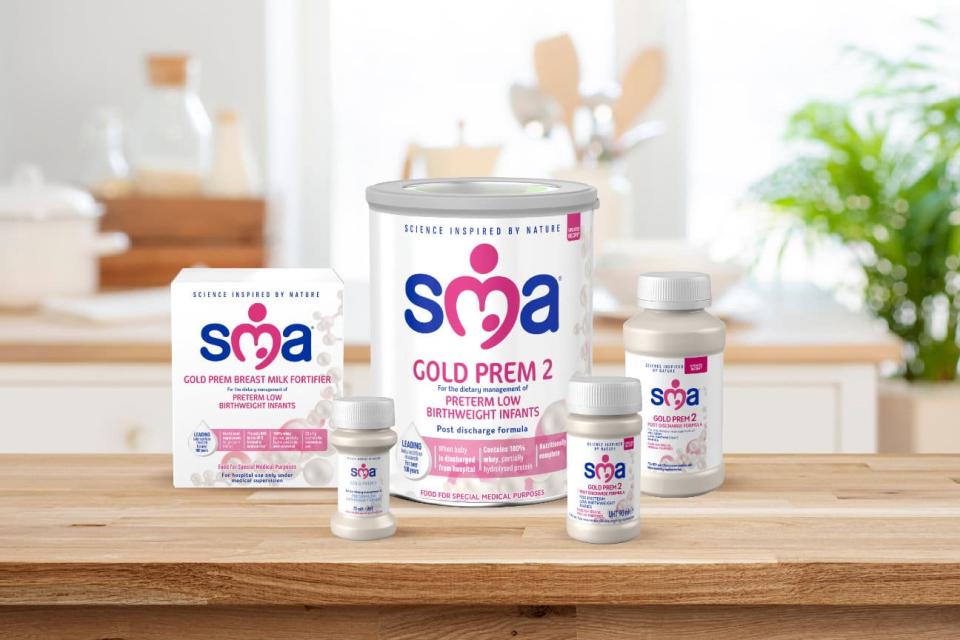Preterm
Preterm infants miss crucial weeks of nutrient accumulation during the third trimester, leading to depleted stores and high nutritional needs1. Approximately 8% of UK babies are born prematurely, facing risks like developmental delays, growth failure, gastrointestinal issues, and medical complications2. Feeding intolerance is a significant concern, with up to 50% of preterm infants experiencing delays in achieving full enteral feeding, resulting in suboptimal nutrient intake and reduced growth rates3,4.
Preterm baby postnatal growth restriction is common due to feeding challenges, particularly in very premature infants5–7. This growth restriction can lead to impaired neurodevelopment, with greater growth deficits linked to more significant neurodevelopment impairments8–10.
The primary goal of nutritional management is to prevent growth failure and protect brain development9. Increased nutrients, especially protein and energy, are associated with positive developmental outcomes11.
The Preterm Hub will provide resources on feeding preterm infants, addressing nutritional challenges, the tolerance benefits of partially hydrolysed protein, iron requirements, weaning, and clinical studies on skin-to-skin contact.
According to ESPGHAN guidelines, use of a multicomponent fortifier enhances the nutrient content of human milk for preterm infants12. Ideally, mothers' own milk (MOM) is preferred, followed by fortified donor human milk (DHM) if MOM is insufficient12. Breast milk offers significant benefits, including lower rates of necrotising enterocolitis and neurodevelopmental advantages13, 14.
ESPGHAN recommends fortifying preterm breast milk to correct decreasing protein content, ensuring improved nutritional status and growth15, 16. If breast milk is unavailable, a preterm infant formula should be used, with hydrolysed protein feeds aiding gastrointestinal transit and enteral feeding advancement1,12.
- Agostoni C et al. J Pediatr Gastroenterol Nutr. 2010;50:85-91.
- WHO. What health challenges do preterm babies face? 2013. Available at: http://www.who.int/features/qa/preterm_health_challenges/en/ (Accessed December 2021).
- Senterre T. World Rev Nutr Diet 2014;110:201-14.
- Fanaro S. Early Hum Dev 2013;89 Suppl 2:S13-20.
- Ehrenkranz R et al. Pediatrics 1999; 104: 280–289.
- Clark RH et al. Pediatrics 2003; 111: 986–990.
- Marks KA et al. Acta Paediatr 2006; 95: 236–242.
- Georgieff MK et al. J Pediatr 1985; 107: 581–587.
- Ziegler E. Ann Nutr Metab 2011; 58 (Suppl 1): 8–18.
- Ehrenkranz RA et al. Pediatrics 2006; 117: 1253–1261.
- Stephens BE et al. Pediatrics 2009; 123: 1337–1343.
- Embleton N et al. JPGN 2023; 76 (2): 248-268.
- Lucas A, Cole TJ. Lancet 1990; 336: 1519–1523.
- Lucas A et al. Lancet 1992; 339; 261–264.
- Ballard O, Morrow AL. Pediatr Clin North Am 2013; 60: 49–74.
- Jones E, King C. Feeding and Nutrition in the Preterm Infant. Elsevier 2005.










